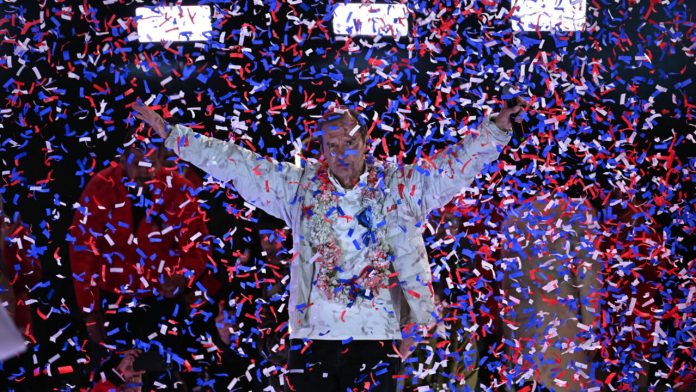Bolivia is heading into one of its most open election in twenty years. Forecasts indicate a major shift to the right. The long-dominant Movimiento al Socialismo (Mas) party, in power since 2005, risks losing parliamentary representation and its legal status.
The Casa Grande del Pueblo, a glass-fronted tower built in 2018, symbolised Mas’s achievements. Today, it stands as a reminder of ambitions that may not last.
Rise and fall of Mas
Mas rose to prominence under Evo Morales. He renegotiated contracts with multinational energy firms and used the revenue for social spending. His government also introduced a new constitution that highlighted Indigenous rights. This gained strong support from Bolivia’s working class and rural communities.
For more than a decade, Mas dominated politics. Morales became a leading figure in Latin America’s wave of left-leaning governments.
The party’s grip began to weaken after Morales lost a 2016 referendum on extending his presidency. A court later allowed him to run again, but disputed election results in 2019 triggered mass protests. Morales resigned and went into exile. Interim president Jeanine Áñez, a conservative senator, reversed many of Mas’s policies. In 2020, Luis Arce, Morales’s former finance minister, won the election. Internal divisions and economic problems soon re-emerged.
A fragmented left and a rising right
This year, neither Arce nor Morales is on the ballot. Polls suggest the contest will be led by Samuel Doria Medina, a centre-right businessman, and Jorge “Tuto” Quiroga, a former president. Both have roughly 20–25% support. Mas candidate Eduardo del Castillo polls below 2%, leaving the party’s future in doubt.
Andrónico Rodríguez, 36, senate president and once close to Morales, runs under a new left-wing alliance. He has struggled to gain momentum. Morales rejected Rodríguez’s candidacy and urged supporters to spoil their ballots. This has fractured the party’s base further.
Economic pressures ahead
Whoever wins will face major economic challenges. Foreign reserves ran dangerously low in 2023. Fuel shortages emerged, and inflation rose to 17%. Medina and Quiroga promise to liberalise the economy and cut public spending. Some fear the right could dismantle Mas’s social legacy entirely.
Around 40% of Bolivians identify as Indigenous. They expect more representation in government. Sociologist Pablo Mamani notes that parliament is no longer a space for a privileged few. It is now for broader participation.
Whether Mas survives, the election marks the end of a dominant era and the start of a new chapter in Bolivian politics.
